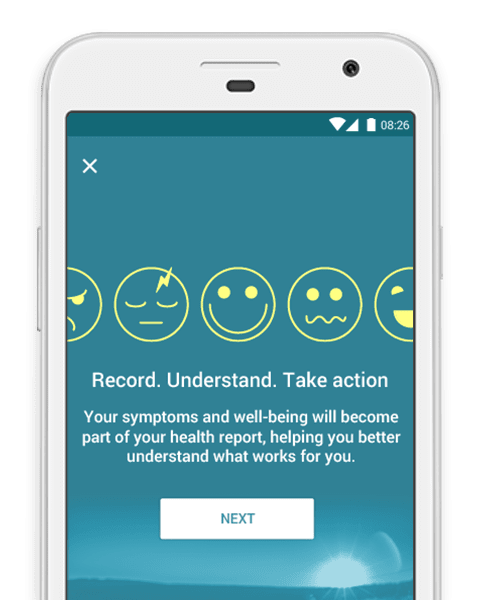With all that 2020 has thrown at us, it’s not surprising that many of us find ourselves feeling tired and worn out. We all go through periods of increased tiredness in our lives, such as when we have young children or are under pressure at work. Officials recommend adults get 7-8 hours sleep a night but 1 in 3 people in the US say they don’t get enough sleep. It’s no wonder then, that so many people complain about feeling tired all the time. But how much tiredness is normal, and when might your fatigue be a sign of something more serious? When feelings of tiredness begin to disrupt your daily life, causing increased irritability and depleted energy levels, it may be time to speak to a doctor about why you’re feeling this way and how you can manage it. Keep reading to find out about some of the key causes of tiredness and what you can do about it.
Your lifestyle choices have a huge effect on your energy levels. Going to bed late and struggling to maintain a healthy sleeping routine leaves us feeling tired the next day. But here are some other key lifestyle-related reasons why you might be struggling to stay awake.
1. Diet
Skipping meals or leaving long gaps between meals can cause your blood sugar to drop, decreasing your energy. A lack of vitamins in your diet can also make you feel sluggish.
2. Drinking alcohol/caffeine
Drinking alcohol during the day can make you feel lethargic. What's more, alcohol disrupts your sleep in numerous ways by making you dehydrated and increasing your need to urinate during the night.
Whilst caffeine can temporarily make you feel more awake, a dependency on it can leave you feeling more tired in the long run.
3. Too little exercise
Exercise is an extremely important part of staying healthy. When we don’t get enough exercise, it contributes to feelings of lethargy and low energy. Daily exercise can help improve the quality of our sleep.
4. Daytime naps
It may seem contradictory, but daytime naps can actually contribute to tiredness levels. Not only can a daytime nap leave you feeling groggy once you’ve woken up, but it also means you’re less likely to sleep well during the night.
As well as lifestyle choices, our mental state can have a huge impact on our tiredness levels. Speak to a doctor if you feel that you are struggling with one of the following conditions:
5. Stress
High stress levels can leave you feeling worn out and sapped of energy. Constant worrying can leave you unable to relax when you get into bed and can disrupt the quality of your sleep.
6. Emotional shock
Traumatic emotional events such as bereavement, being fired, or a break-up can significantly impact your ability to get a good night’s sleep and can leave you feeling sleep-deprived.
7. Depression and Anxiety
If your feelings of tiredness are accompanied by persistent feelings of sadness or hopelessness, then you may have depression. For more information about depression and how you can get help click here.
Anxiety disorder can often occur alongside depression. Constant feelings of nervousness, panic, and worry cause can cause significant sleep disruption. To find out more about Generalised Anxiety Disorder, click here
Feelings of increased tiredness could be an indication of a more serious physical health condition. Speak to your doctor if you’ve been feeling tired for more than 4 weeks. Here are some of the key physical conditions that can cause fatigue, however, this list is not at all exhaustive:
8. Anemia
Iron deficiency anemia is caused by a lack of iron, often because of blood loss or pregnancy. Hemoglobin is a protein that is rich in iron and that helps red blood cells carry oxygen from the lungs to the rest of the body. If you have anemia, your body does not get enough oxygen-rich blood resulting in tiredness.
9. Underactive thyroid
An underactive thyroid gland does not produce enough hormones. Common signs are tiredness and feeling depressed.
10. Sleep apnea
This is a condition in which your breathing stops and starts while you sleep, causing disruption to your sleep and resulting in tiredness.
11. Being overweight
If you are overweight or obese, your body has to work harder to perform daily activities, resulting in you feeling worn out.
12. Diabetes
High blood sugar levels that result from a lack of insulin can impact the body’s ability to get glucose from the blood into cells to meet our energy requirements.
13. Carbon monoxide poisoning
This is most common if you don’t have a carbon monoxide alarm. When carbon monoxide is breathed in, it enters the bloodstream and binds with hemoglobin (the component of red blood cells that helps them carry oxygen). Therefore your blood has less capacity to carry oxygen around the body. This results in the feeling of tiredness, breathlessness, and, in extreme cases, causes the body’s cells and tissues to fail. Speak to your doctor immediately if you think you have carbon monoxide poisoning.
14. Irritable bowel syndrome (IBS)
IBS is a gastrointestinal disorder that frequently causes cramps, bloating, and tiredness.
15. Cushing’s Syndrome
This is a hormonal condition that occurs when a person’s cortisol levels are too high. It can affect the blood flow in the body, causing tiredness.
16. Infections such as malaria, tuberculosis, HIV, the flu, and hepatitis
These infections are known to cause extreme tiredness. Speak to your doctor if you feel you have one of the above infections.
Ways You Can Combat Tiredness
Here are some lifestyle adjustments you can make that might help keep tiredness at bay. If you are experiencing extreme tiredness that results from a more serious condition, it is important to speak to your doctor about ways that you can deal with it.
Napping
Although it is often best to avoid daytime naps for the reasons explained above, if you’re feeling particularly tired because you had a very poor night’s sleep and this is impacting your ability to fulfill the day’s activities, then a nap might help you get back on track. It is important not to nap for too long as this will leave you feeling even more tired. For recovering from fatigue a 15-20 minute nap is ideal since the further along you are in your sleep cycle, the harder it is to get over the weariness that you feel when you wake up.
Diet
To maintain your blood sugar levels throughout the day, it’s important not to leave long gaps in between meals. Instead, you should eat regular meals and healthy snacks every 3 to 4 hours. Examples of healthy snacks include fruit, protein bars, nuts, etc.
Ensure you’re incorporating a good variety of nutrients into your diet by eating plenty of fresh food from different food groups, such as fresh fruit and fresh fish. Unrefined carbohydrates and protein can help you sustain your energy levels, and you should also include plenty of fiber in your diet to aid digestion.
Promoting healthy digestion is important to help prevent and manage IBS which, as we discussed above, causes tiredness and depleted energy levels.
To prevent or manage anemia, it is essential to incorporate lots of iron into your diet, this will help control the tiredness that is associated with the condition. Foods rich in iron include red meat, beans, nuts, dried fruit, and spinach.
Exercise
The benefits of regular exercise are infinite. When you exercise, your body releases endorphins that naturally boost your energy levels and lead to more high-quality sleep.
A 2008 study found that regular exercise can reduce symptoms of fatigue. In the study, 36 sedentary young adults did either low-intensity or moderate-intensity exercise over six weeks. Both groups saw improvements in energy levels.
Lose weight
If your body is carrying excess weight, it can put extra strain on your heart and joints which makes you tired. Losing weight will make you feel much more energetic.
The best ways to lose weight are to maintain a healthy, balanced diet, and be more active. For advice on how to lose weight safely, click here.
Reduce Stress
If racing thoughts are keeping you awake at night and high stress levels and constant worrying are impeding your ability to wind down at the end of the day, there are several things you can do to help yourself relax. Listening to music or reading can help reduce stress and make you feel calmer. You might also benefit from introducing yoga into your daily routine to relieve physical tension in your body. There are thousands of excellent yoga tutorial videos on YouTube.
Try listening to something soothing as you go to sleep to help distract yourself from whatever might be worrying you. If you find that your mind races when you get into bed at night, you could download the app ’Calm’ and listen to a sleep story or some rain sounds. Alternatively, you could try listening to some ASMR videos when you go to sleep, which have been proven to reliably reduce heart rate and increase relaxation.
Cutting down on caffeine and alcohol
Although caffeine may give you an initial boost of energy after you drink it, if you become reliant on it to help you feel awake, it can leave you feeling constantly depleted in the long run. If you struggle to get the day started without caffeine, try slowly reducing your intake to avoid strong withdrawal symptoms, whilst implementing some of the tips listed above to improve your natural energy levels.
When you have alcohol, drink in moderation and try to have as many days without alcohol as possible. This will help improve the quality of your sleep and increase your hydration levels.



